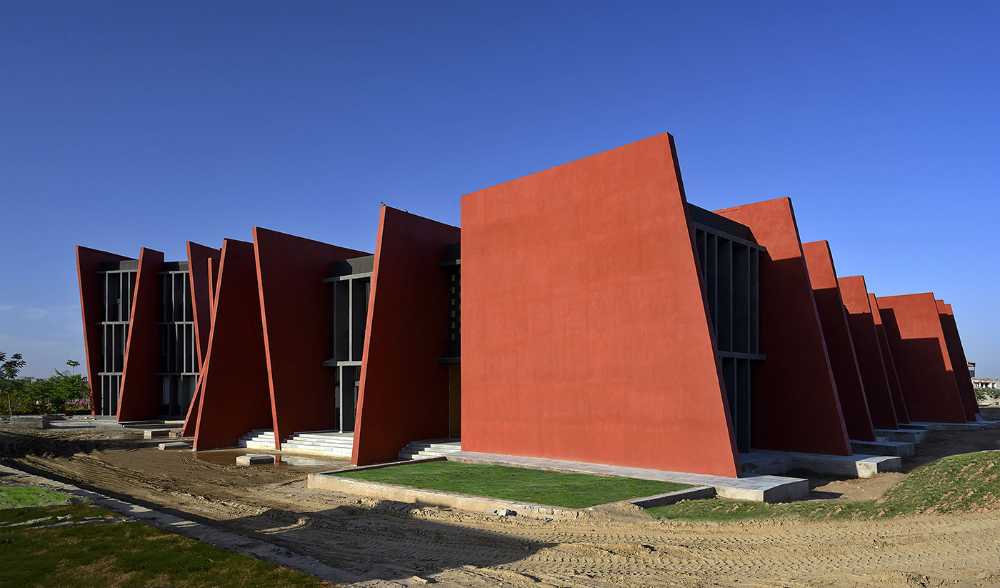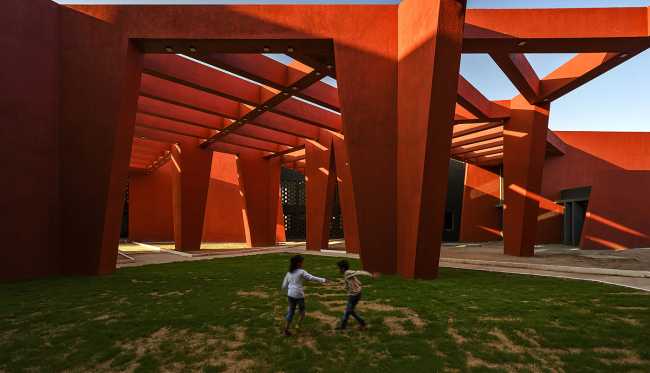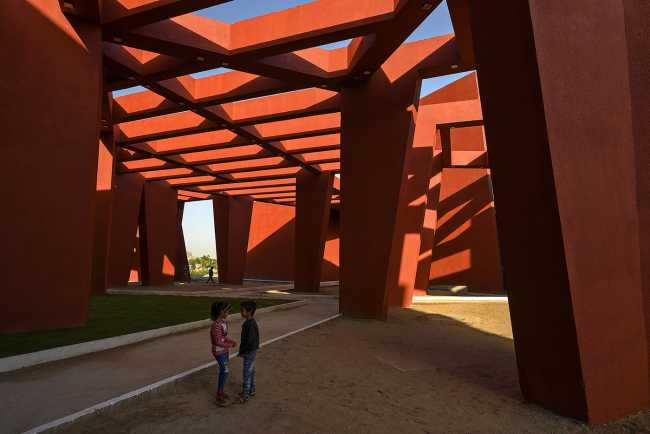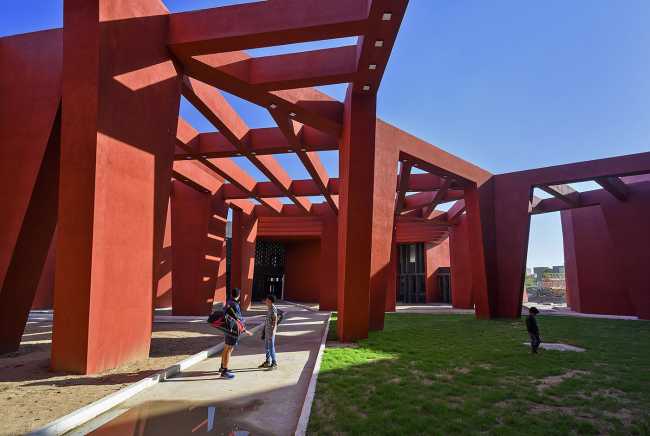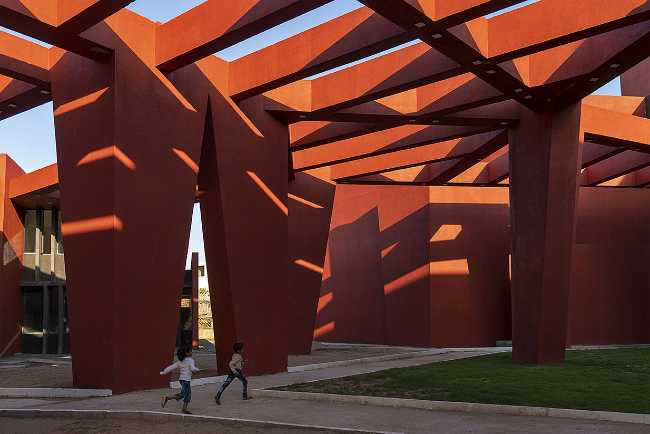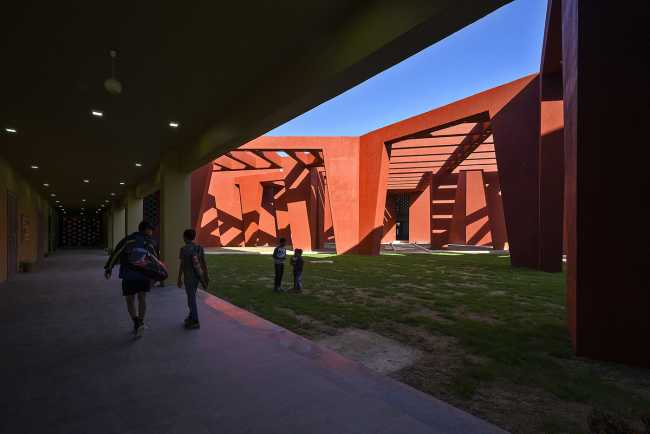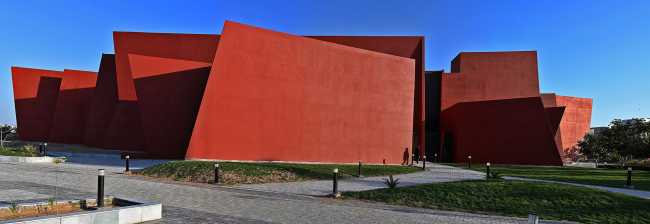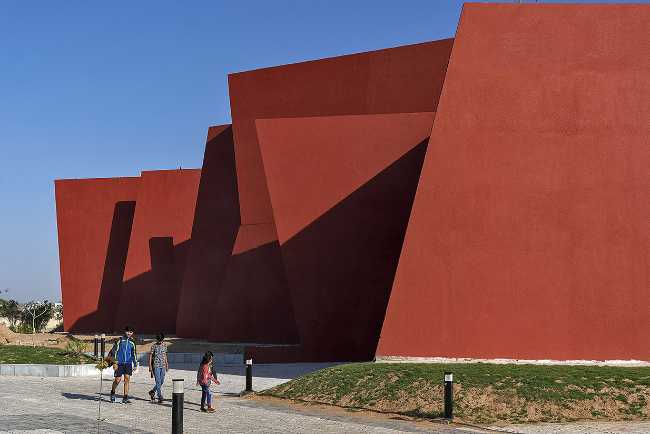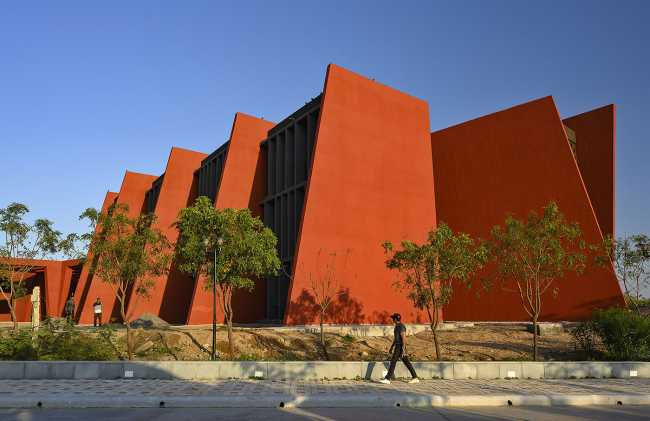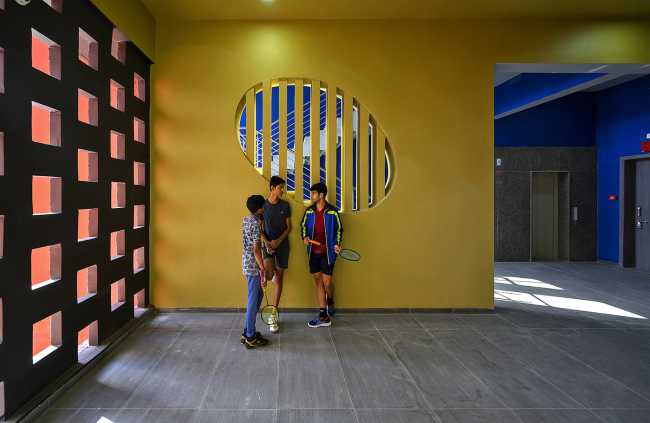The auditorium, elementary school and administrative space occupy the southern side of the plot leading into a large sheltered area open to the north beyond which are the secondary school classrooms, library and cafeteria
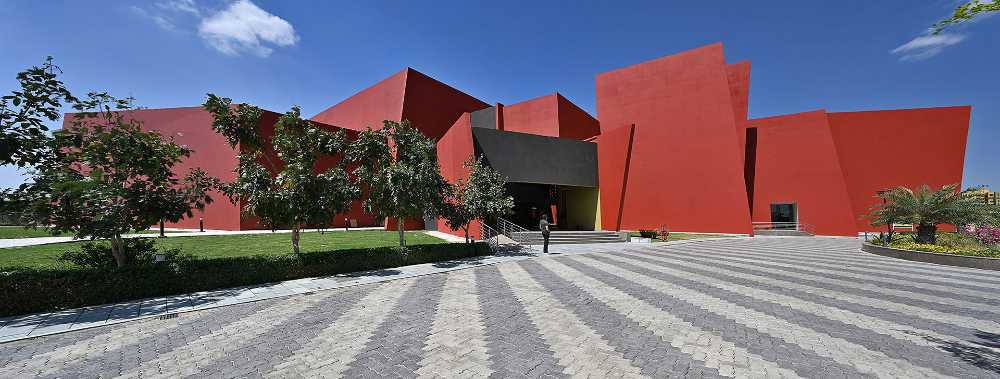

High school in India. Trapezoidal volumes design the architecture between contrasting lights and shadows
Sanjay Puri Architects interpreted the organic character of Indian villages to create the design of the school in Rajasthan. Taking into consideration the desert climate of its location each of the classrooms is oriented to the north to get indirect sunlight
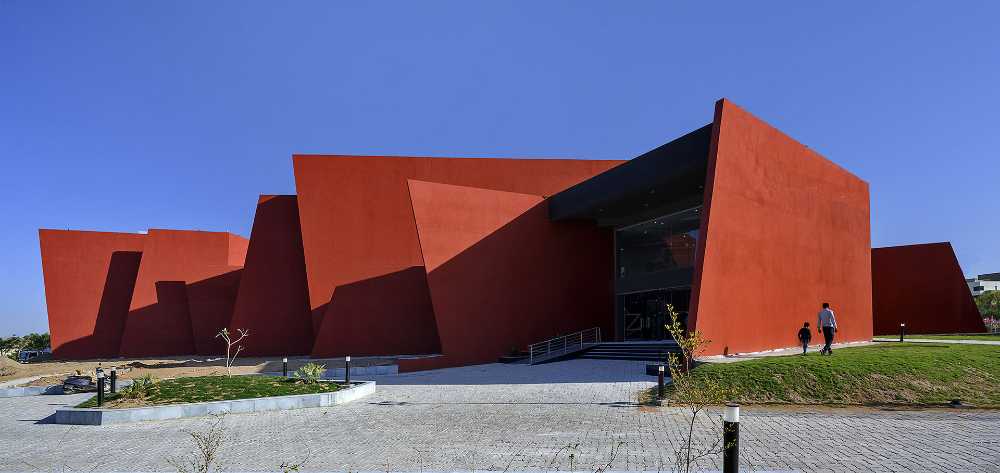
The semi-repaired courtyard has multiple pathways connecting the two parts of the school with landscaped playing spaces. Crisscrossed by a series of linear trapezoidal frames and sunshades, this focal area has an ever-changing shadow pattern depending on the direction of the sun throughout the day. The layout is deliberately fragmented allowing open spaces interspersed with learning spaces
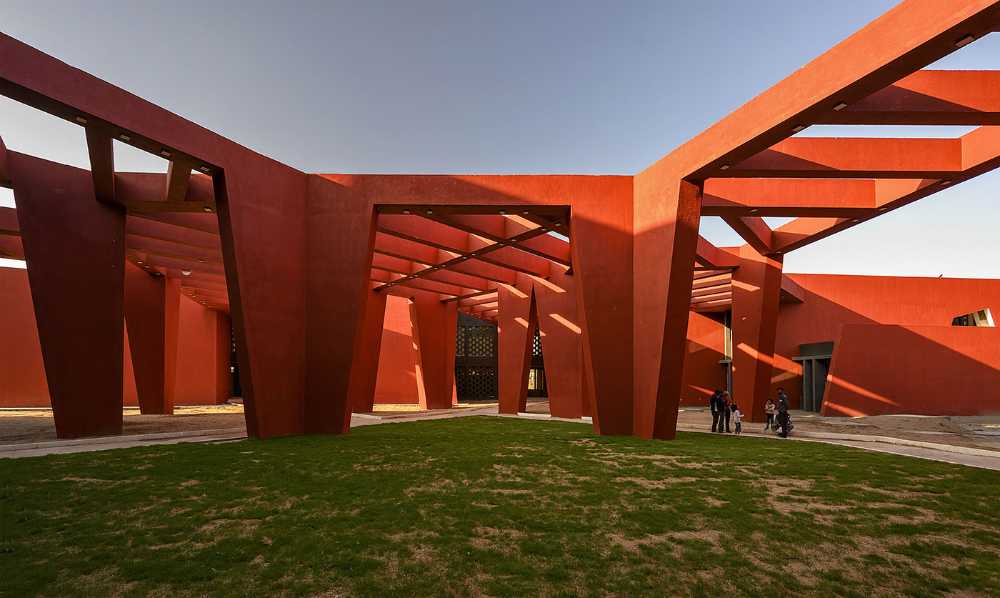
The entire school opens to a park and athletic track on the north side. All circulation occurs through open, breezy corridors that flank the semi-repaired courtyard in the center. Rotated vertical walls act as sunshades to reduce the impact of heat
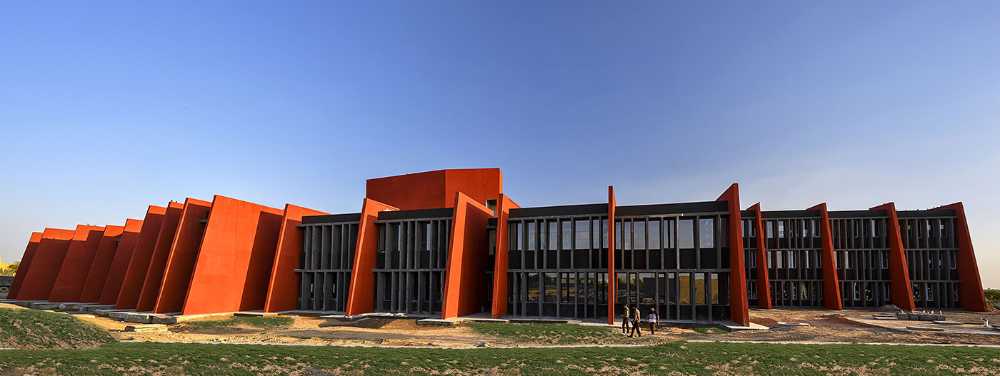
All the electricity needs are generated by residual energy from a nearby cement plant and all the water is recycled and reused. Therefore, the building is extremely energy efficient. The organic layout creates a different character for each part of the school and orients each space with different views and perceptions. The Rajasthan School derives its character from the old organic cities, with an informal layout, interspersed open and closed volumes, designed in response to the warm climate, creating a school that is exploratory in multiple ways
